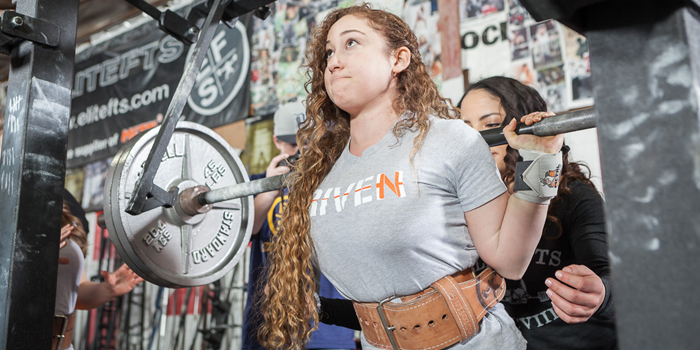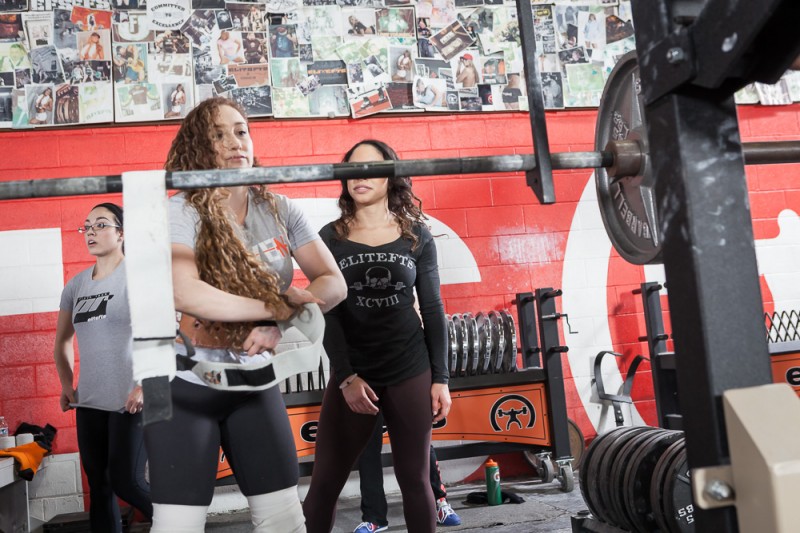
Ciaran: How’s your training going?
Me: [bewildered look, brief pause, and a long moment of thinking]
Given that I’ve been running off of four to six hours of sleep a night for the past year, I’d say pretty good. I actually hit some single leg squats for five triples, high bar, beltless, at 170 pounds. They were pretty easy too, which is the odd part.
Ciaran: What’s changed?
Me: My training ego.
Training Ego (noun): Your self-image/esteem as it relates to your training. Training ego can be heavily influenced by the progress/accomplishments you make in training, before even stepping on the platform. Your training ego is often responsible for things like moving weights with improper technique or doing assistance exercises that you are really good at.
Did you see how much her knees came in when she did that squat? It was like she was doing the wobble dance. She should really drop the weight and fix that issue. She has a serious training ego though, so she probably won’t.
RECENT: Effective or Ineffective: When To Keep or Drop Your Training Program
I have a confession to make: I used to have a massive training ego. Back when I was competing multiple times a year, I used to approach every training session wanting to move the most weight possible. It didn’t matter if I was doing assistance work, max effort work, or recovery work; I wanted to give 100 percent (and then some). I hated the idea of dropping weights down to do something perfectly, when I could do something pretty well with more weight on the bar. I know, super dumb. Consequently, I spent about five years getting my strengths stronger, and my weaknesses weaker. When I started competing, it didn’t really hold me back. However, as the years progressed, it really started to slow me down.
Then graduate school happened. I started working 60-80 hour weeks in the lab (we study molecular mechanisms regulating muscle development) and I realized that:
- Competing (in powerlifting) was on the backburner for awhile.
- Sleep was just going to be cut short, often (as they say, adapt or die).
- I needed to modify/optimize my training if I wanted to get stronger.
In order to accomplish number three, I was going to have to check my training ego. For those of you who have one, I’m sure you can image how hard that can be. For me, it was nearly impossible, as I can be a bit strong-willed and occasionally stubborn (I’m getting better with age). And as a result, I spent a good few months hanging on to my training ego, as my lifting started to suffer from limited sleep and long days/nights at work.
MORE: Don't Believe Your Own Bullshit
But then one sleep deprived morning, my training ego gave up. It had become exhausted from doing stupid things in an empty gym, at four in the morning, in front of an audience of none. It decided it was ridiculous to keep holding me back when the pressures of competing were on hiatus. And so, I waved goodbye to my training ego and actually started training. My program became filled with the things I was terrible at and the bar became loaded with appropriate weights, rather than “survivable” ones. Each training session became a testament to my resolution to drop my ego and, with time, each session hurt my ego less and less.
And then, about a year later, something happened.
After a year of eating humble pie flavored protein bars, and taking what felt like a million steps backwards, I finally started to improve. The “pitifully low” weights that I was using started to get easier, and soon, they even started to increase. Then one day, my weights surpassed those which I had ego-ed through in the past. Putting grad school first and pausing competing (for a bit) really helped me check my training ego. By letting go of my feelings of pressure to be the strongest in training, I was able to focus in on making sure that I did the things needed to get stronger.
And so in the conversation above, at that moment, I realized that progress in powerlifting is about the consistent discipline you apply to each training session. It’s not the kind of discipline that includes showing up on time and putting in 100 percent of your effort, but the kind that involves checking your training ego and ignoring the lure of short-term victories so you can obtain long-term successes. It’s almost as if part of powerlifting progress stems from letting go of potential outcomes and focusing on actual processes. Looking back, I only wish I could have realized that in the start. But hey, as they say: better late than never!












2 Comments